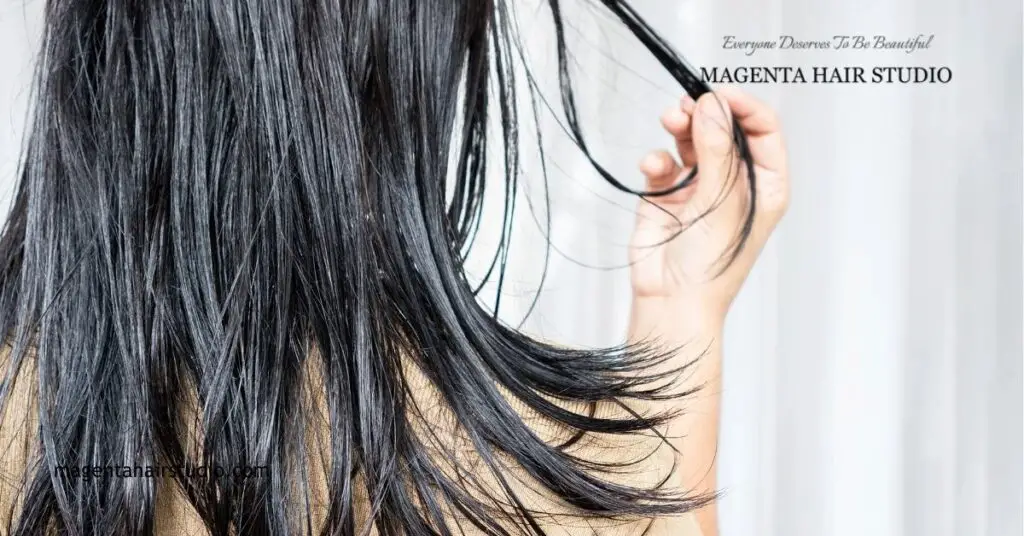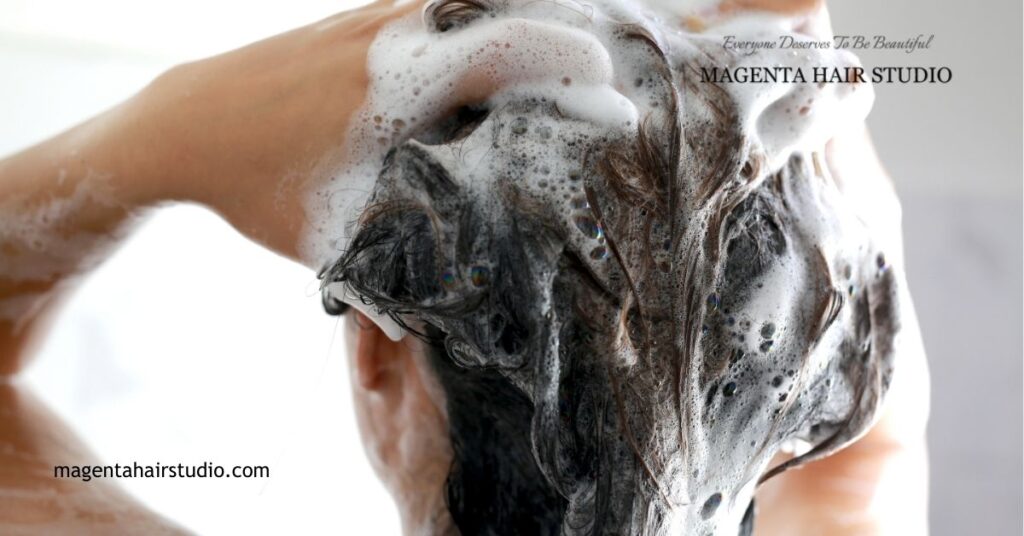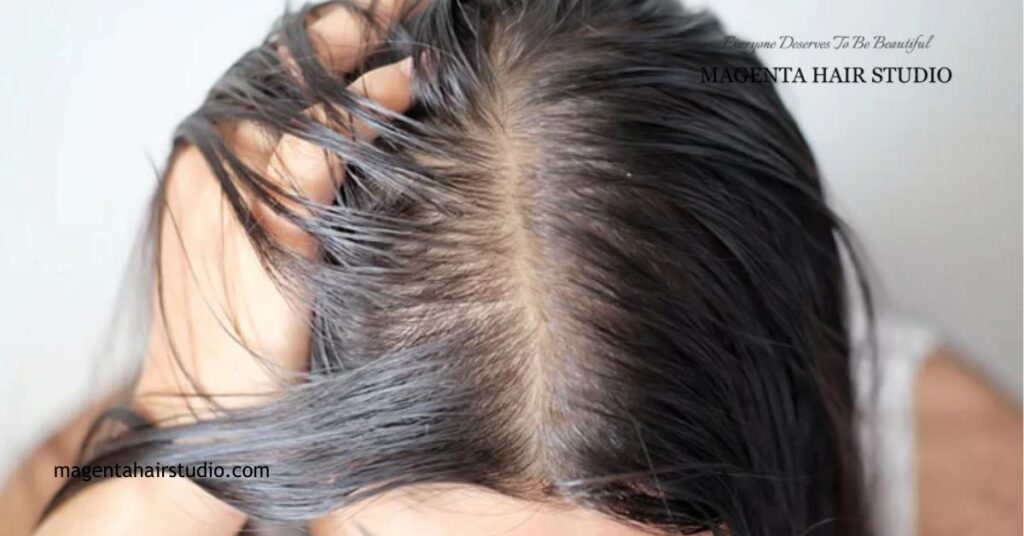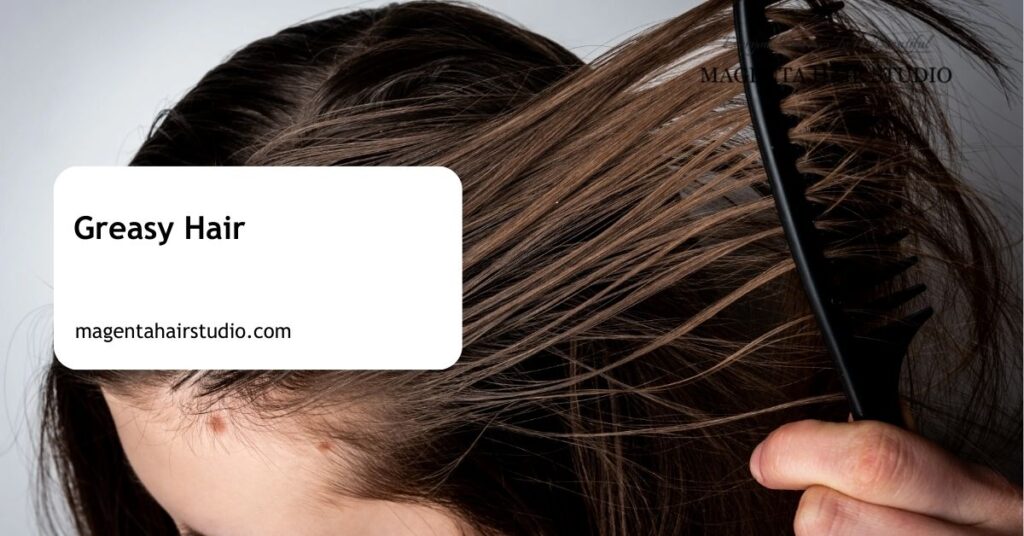Dealing with greasy hair can be a daily challenge that affects how we feel and present ourselves. We’ve all experienced that unwanted shine and limpness that just won’t go away, no matter how often we wash.
But it doesn’t have to be this way. Together, we’ll explore effective strategies and practical tips to manage oily locks and restore your hair’s natural balance. From understanding the root causes to selecting the right products, we’ve got you covered.
Imagine running your fingers through fresh, vibrant hair every day. Say goodbye to greasy strands and hello to the confidence that comes with healthy, beautiful hair. Let’s immerse and transform your hair care routine for good.
Understanding Greasy Hair

Greasy hair can be a real headache, affecting both your appearance and confidence. Let’s explore what causes greasy hair and debunk some common myths about it.
What Causes Greasy Hair
Excess oil production is the main culprit behind greasy hair. Hormonal changes, such as those during puberty or stress, can increase oil production. Using heavy or unsuitable hair products can also weigh your hair down, making it look oily. Skipping regular washes allows oil to accumulate, contributing to greasy strands. Also, genetics play a important role, as some of us naturally produce more oil than others.
Common Myths About Greasy Hair
There are several misconceptions about greasy hair that we need to clear up:
- Washing more often makes it greasier.
Over-washing can strip your scalp of natural oils, causing it to produce even more oil to compensate.
- Greasy hair is always a sign of poor hygiene.
Many factors, including genetics and hormonal changes, can lead to oily hair regardless of how often you wash it.
- Only the scalp produces oil.
Greasy hair can also result from using heavy styling products or not rinsing them out properly.
- Greasy hair can’t look healthy.
With the right care and styling, your hair can still appear shiny and vibrant even though being oily.
Identifying Your Greasy Hair Type

Identifying your hair type helps us tailor the best care routine. Let’s jump into the main categories.
Oily Scalp vs. Oily Strands
- Oily Scalp: Excess sebum production at the roots causes the scalp to feel greasy and the hair to appear flat within hours after washing. This type often attracts dirt easily and may lead to dandruff.
- Oily Strands: Oil builds up along the hair lengths, making detangling difficult while the ends remain dry. This mixed condition requires balancing oil control at the roots and hydration for the ends.
How to Assess Your Hair’s Oiliness
- Observe Wash Frequency: If your hair becomes greasy within a day or two after washing, especially at the roots, you likely have oily hair.
- Feel the Hair Texture: Greasy, sticky, or heavy hair suggests excess oil production, while dry or brittle ends indicate mixed conditions.
- Check for Dirt and Dandruff: An oily scalp attracts dirt and may be prone to dandruff, signaling the need for exact treatments.
- Analyze Hair Behavior: Flat and heavy hair that loses volume quickly points to an oily scalp, whereas difficult-to-detangle lengths highlight oily strands.
Effective Home Remedies for Greasy Hair

Managing greasy hair at home can be simple and effective with the right ingredients. We’ve gathered some of our favorite natural answers to keep your hair fresh and oil-free.
Natural Shampoo Alternatives
- Opt for baking soda instead of traditional shampoo. Mix one tablespoon of baking soda with water to create a paste, then massage it into your scalp to cleanse and remove excess oil.
- Switch to apple cider vinegar rinses. Dilute apple cider vinegar with water in a 1:3 ratio and use it as a final rinse after washing to balance scalp pH and add shine.
- Use aloe vera as a natural cleanser. Apply pure aloe vera gel to your scalp, let it sit for a few minutes, and then rinse thoroughly to cleanse without stripping natural oils.
- Try a herbal infusion shampoo. Brew a strong infusion with herbs like rosemary or lavender, cool it down, and use it as a gentle shampoo alternative to nourish your scalp.
DIY Hair Masks to Reduce Oil
- Create an egg and lemon mask. Whisk one egg with a tablespoon of lemon juice, apply it to your scalp, and leave it on for 15 minutes to tighten pores and reduce oiliness.
- Mix yogurt and honey for a moisturizing mask. Combine two tablespoons of plain yogurt with one teaspoon of honey, apply to your hair, and rinse after 20 minutes to balance scalp oils.
- Prepare a clay mask using bentonite clay. Mix bentonite clay with water and a few drops of tea tree oil, apply to your scalp, and let it dry to absorb excess grease and clarify the hair.
- Blend banana and olive oil for hydration. Mash a ripe banana and mix it with one tablespoon of olive oil, apply the mixture to your hair, and leave it on for 30 minutes to nourish and regulate oil production.
Selecting the Best Products for Greasy Hair

Top Clarifying Shampoos
- Clarifying Shampoos remove product buildup, excess oils, and impurities, making them essential for oily hair. Opt for formulas rich in cleansing and exfoliating ingredients to maintain a fresh scalp.
- Olaplex No. 4C Bond Maintenance Clarifying Shampoo employs gentle, mild surfactants and is sulfate-free. It includes bond-building components that strengthen and repair hair, ensuring both cleanliness and hair health.
- Bumble and bumble Sunday Shampoo contains sulfates that effectively cut through oil and buildup. But, pairing it with a deep conditioner is advisable to prevent dryness after use.
- Living Proof Clarifying Detox Shampoo effectively eliminates oil and product residue, allowing for extended periods between washes. This makes it ideal for maintaining a clean scalp without frequent shampooing.
Oil-Free Conditioners and Treatments
- Oil-Free Conditioners hydrate your hair without adding extra grease. Choose lightweight formulations that provide moisture while keeping your hair feeling fresh and manageable.
- Leave-In Treatments nourish your hair without weighing it down. Incorporate oil-free leave-in conditioners to detangle and protect your hair, maintaining its vibrancy throughout the day.
- Lightweight Serums add shine and smoothness without contributing to oiliness. Apply oil-free serums to enhance your hair’s appearance while maintaining an oil-free state.
- Clarifying Leave-Ins help maintain a clean scalp by preventing oil buildup. These treatments work alongside shampoos to keep your hair fresh and reduce the need for frequent washes.
Maintaining Greasy Hair: Tips and Tricks

Keeping greasy hair under control requires the right strategies. Let’s explore effective techniques and lifestyle changes to manage oiliness.
Proper Washing Techniques
- Wash Frequency
Finding the right balance in washing frequency is essential. Washing every other day or even daily might work for some of us, but it’s important to avoid stripping the scalp of its natural oils. Experimenting with different schedules helps determine what suits your hair type best.
- Shampooing Technique
Applying a small amount of shampoo to the roots and scalp ensures effective cleaning. Gently massaging with fingertips or a scalp massager prevents increased oil production. Focus on cleansing the scalp rather than the hair length to maintain oil balance.
- Rinsing
Thoroughly rinsing your hair removes all shampoo residues. Letting the water flow through the ends without scrubbing preserves hair health. Ensuring the water runs clear helps avoid any leftover soap that can weigh hair down.
Lifestyle Changes to Prevent Greasy Hair
- Balanced Diet
Eating a balanced diet rich in vitamins and minerals supports healthy hair. Incorporating foods like leafy greens, nuts, and lean proteins can reduce excess oil production.
- Stress Management
Managing stress effectively helps regulate hormone levels that affect oil production. Practices such as yoga, meditation, or regular exercise can keep stress and, so, greasy hair at bay.
- Avoiding Touching Your Hair
Frequently touching your hair transfers oils from your hands to your strands. Keeping hands off reduces oil buildup and keeps your hair looking fresh longer.
- Using the Right Hair Products
Selecting oil-free and lightweight hair products prevents additional grease. Opting for non-comedogenic conditioners and styling products helps maintain a clean, vibrant look.
- Regular Exercise
Captivating in regular physical activity promotes a healthy scalp by improving circulation. Remember to rinse your hair after sweating to prevent oil and sweat from accumulating.
- Proper Sleep Habits
Getting enough sleep supports overall health, including hair health. Aim for 7-9 hours each night to help regulate oil production and keep your hair looking its best.
When to Seek Professional Help for Greasy Hair

If you’ve tried various home remedies and routine changes without success, it might be time to reach out to a professional. Here are key signs that professional help is needed:
Consulting a Trichologist
A trichologist specializes in hair and scalp health. When persistent greasiness doesn’t improve with typical care, consulting one can help identify underlying issues. They assess conditions like seborrheic dermatitis or dandruff that often accompany oily hair. By understanding your exact scalp concerns, a trichologist can recommend customized treatments and products to effectively manage oil production.
Medical Treatments for Excess Oil Production
In some cases, over-the-counter answers aren’t enough to control excess oil. Medical treatments can offer more comprehensive answers. Dermatologists may prescribe medicated shampoos or topical treatments to regulate sebum levels. For hormonal imbalances contributing to oily hair, hormone therapy might be necessary. Also, advanced treatments like laser therapy can help reduce oiliness and improve overall scalp health, providing long-term relief from greasy hair.
Conclusion
Managing greasy hair doesn’t have to be a daily struggle. By understanding your hair type and adopting the right care routine, we can achieve fresh and vibrant locks. Embracing the tips and strategies we’ve shared empowers us to take control of our hair health confidently. Remember, everyone’s hair is unique, and with patience and consistency, managing oiliness becomes simpler. Let’s embrace our hair journey and showcase the best version of ourselves every day.
Frequently Asked Questions
What causes greasy hair?
Greasy hair is primarily caused by excess oil production from the scalp’s sebaceous glands. Factors include hormonal changes, genetics, using unsuitable hair products, infrequent washing, and environmental influences. Additionally, stress and diet can contribute to increased oiliness. Understanding the underlying cause helps in selecting the right treatment to manage oily hair effectively.
Can washing hair more often make it greasier?
Yes, washing hair too frequently can strip the scalp of its natural oils, prompting the sebaceous glands to produce even more oil to compensate. This imbalance can lead to increased greasiness over time. It’s essential to find a balanced washing routine that cleanses without over-drying the scalp.
Is greasy hair a hygiene issue?
No, greasy hair is not solely a hygiene issue. While it involves excess oil, factors like hormonal changes, genetics, and the type of hair products used also play significant roles. Proper hair care and choosing the right products are crucial in managing oiliness, regardless of hygiene practices.
How can I identify my greasy hair type?
To identify your greasy hair type, observe your wash frequency, feel your hair texture, check for dirt or dandruff, and analyze how your hair behaves throughout the day. Determine if the oiliness is concentrated on the scalp or extends to the strands. This assessment helps tailor an effective care routine.
What are some effective home remedies for greasy hair?
Effective home remedies for greasy hair include using baking soda as a gentle cleanser, apple cider vinegar rinses to balance pH, aloe vera to soothe the scalp, and herbal infusion shampoos. Additionally, DIY masks like egg and lemon, yogurt and honey, bentonite clay, and banana with olive oil can help reduce oiliness and cleanse the hair naturally.
Which shampoos are best for controlling oily hair?
Clarifying shampoos are ideal for controlling oily hair as they remove product buildup and excess oils. Recommended options include Olaplex No. 4C Bond Maintenance Clarifying Shampoo, Bumble and bumble Sunday Shampoo, and Living Proof Clarifying Detox Shampoo. Additionally, using oil-free conditioners and lightweight serums helps maintain oil balance without adding greasiness.
How do I properly wash greasy hair?
Properly washing greasy hair involves finding the right wash frequency, applying shampoo correctly to cleanse the scalp thoroughly, and ensuring thorough rinsing to remove all residues. Avoid using excessive amounts of shampoo and opt for lukewarm water to prevent stimulating more oil production.
What lifestyle changes can help reduce greasy hair?
Lifestyle changes that can help reduce greasy hair include maintaining a balanced diet, managing stress levels, avoiding excessive touching of the hair, selecting appropriate hair products, engaging in regular exercise, and establishing proper sleep habits. These changes support overall scalp health and regulate oil production.
When should I seek professional help for oily hair?
If home remedies and routine adjustments fail to manage greasy hair effectively, it’s advisable to consult a trichologist. Professional help may be needed to identify underlying issues such as seborrheic dermatitis or hormonal imbalances. Medical treatments like medicated shampoos or hormone therapy might be necessary for persistent oiliness.
Can natural ingredients really manage greasy hair?
Yes, natural ingredients can effectively manage greasy hair. Ingredients like baking soda, apple cider vinegar, aloe vera, and various herbs help cleanse the scalp, balance oil production, and nourish the hair without harsh chemicals. Incorporating these natural remedies into your hair care routine can promote healthier, less oily hair.







